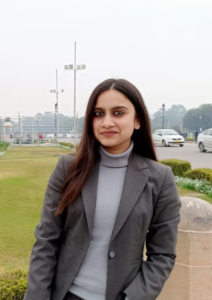Aishwarya is a Senior Research Associate at Dvara Research. She is passionate about building welfare systems that are equitably accessible for all and redistributive in nature. Aishwarya’s areas of research and advocacy include digitisation in social protection, last-mile delivery systems, and grievance redress mechanisms in digital finance and social protection. An overarching theme across her research are the methods to unlock easy access to government and financial services for the most marginalised citizens.
Aishwarya holds a Master’s in Applied Economics from the National University of Singapore. Prior to Dvara Research, she was a Research Associate at the Asia Competitiveness Institute, Lee Kuan Yew School of Public Policy.








